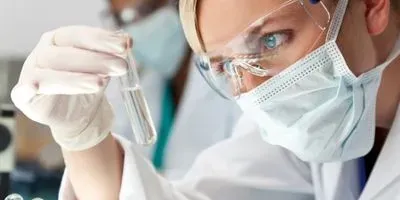As with many other organizations, labs big and small have been impacted by the current coronavirus pandemic. With some states slowly lifting the social distancing measures necessary to slow the spread of the virus, some labs are now putting together plans to return to work in a very different environment than the one staff left.
One Lab Manager reader who works in an industrial lab shared in an early May email what she’s learned so far from managing during a pandemic. She said that since the pandemic affected many businesses her company relies on to operate, they had to cut hours for all employees and get extra creative with the working time they did have.
“Thankfully, our company didn’t see any layoffs during this very stressful time, but making sure we were utilizing our talents in new and sometimes completely unrelated positions in the most economic way was a big change,” said Mattie Jensen, a laboratory and technical manager in Illinois.
Though many labs have had to put research on hold for the time being, her company has been fortunate in that they have not needed to cancel any key projects.
Like many other companies, employees who could feasibly work from home were switched to working remotely, requiring lots of flexibility from upper management, Jensen said, adding that the reagent and media supply issues hampering many labs have been a bit of a challenge for her organization as well.
“We are all just trying to make sure we stay well stocked on necessary supplies—without hoarding anything,” Jensen said. “Communication with all of the laboratories and our vendors has been key.”
Strong communication has also been important for Jensen’s lab in helping staff through the changes and challenges of the COVID-19 situation, with video conferencing being one of the key tools to staying connected with remote employees.
“We have been keeping communications 100 percent open and honest with staff,” she said. “When things were looking very bad for the company, we were honest about it. Cutting hours was hard for everyone, but it ultimately saved us and I think everyone knows and understands it now.”
Back to work in the lab
Similarly, keeping their scientific community up to speed on reopening plans has been important for North Carolina’s Duke University, which held a virtual townhall meeting last week outlining how they plan to go about resuming work at their research labs.
With plenty of work still to be done, Duke’s vice president for research Larry Carin said in a release that the university hoped to get some labs open as early as this week, depending on the availability of hand sanitizer stations for researchers. Face masks will also be mandatory for those in the labs and only researchers who absolutely need to be there will be allowed in, in order to maintain spacing of 15 feet between workers. The guidelines, developed with infectious disease experts and others at Duke’s schools of medicine and engineering, also require extra security and monitoring of lab access. As well, scientists will need to fill out a confidential survey about their health before they are allowed to work.
“I know this sounds kind of like ‘Big Brother,’ and I apologize for that,” Carin said during the town hall, as reported in a news article on the Duke website. “We’re doing this for everybody’s best interest, to assure safety for all.”
Jensen’s company has also given staff extra face masks and hand sanitizer and no one has yet gotten sick. During the new normal of the pandemic, they’ve learned a lot about the benefits that come from working remotely—such as reduced overhead and commute times for employees, as well as attracting new talent—that could make it a continued practice at Jensen’s company.
“We also had to look into new streams of revenue in our services provided to keep our laboratory going, which took a fair amount of time and research but will pay off long after this outbreak is over,” Jensen added. “Our accrediting bodies are now looking into doing remote audits instead of traveling around the country so much, which is very difficult for me to imagine, but I can see why it is a necessary change!”
Other labs have been finding the positives in working remotely, and using virtual tools to keep things light. The National High Magnetic Field Laboratory (MagLab), for example, has created its own Zoom backgrounds so that everyone, not just MagLab staff, can look like they are working from the lab.
Related Big Picture Series: The State of Science During COVID-19
And, according to an article on the MagLab website, researchers, while they certainly miss being in the lab, have found working virtually to boost their focus, creativity, and productivity. For many scientists, it’s also been the first time in a while that they actually have time to go through the many years of data from their experiments.
"I'm almost reluctant to go back into the chaos of the office and all the distractions that happen," said Tom Mareci, a MagLab staff scientist, in the article. "Sometimes I don't have time to think."
Mareci added that virtual meetings made necessary by social distancing have bettered his communication skills, since he has to put more thought into planning them, due to the time limits of platforms such as Zoom.
For Jensen, one of the biggest lessons the pandemic has taught her, apart from the benefits of remote work, is that no industry is completely safe.
“Not even science is a protected industry,” she said. “You get into this industry thinking it is recession-proof and thinking you always have job security—but it is not always the case.”
Like Duke’s research community, Jensen expects work at her lab—and life in general—will never be the same again.
“I believe we will always be hyper aware of what we touch and how often our hands are washed and even someone coughing in an elevator will probably trigger some serious anxiety,” she said. “I just hope that people start taking environmental microbiology seriously, and—who knows—maybe the pandemic will help our lab in the long run!”
Want to share your lab’s pandemic experience and the lessons you’ve learned? We’d love to hear from you! Feel free to drop us a line at info@labmanager.com.














